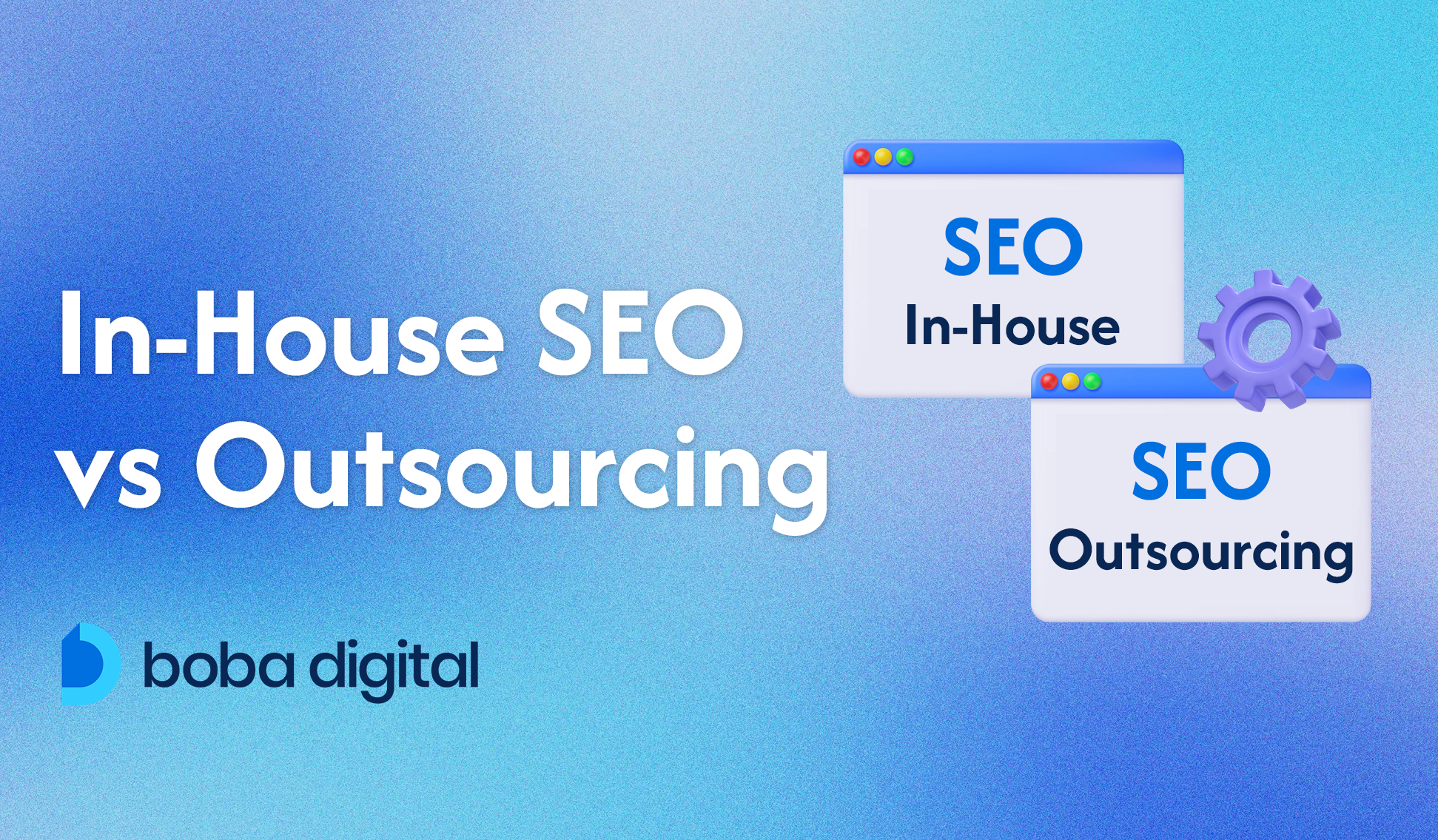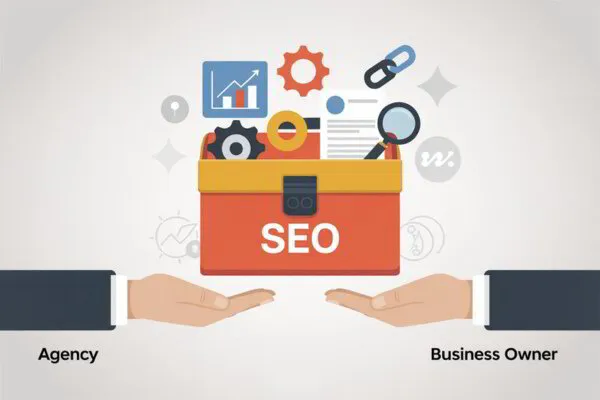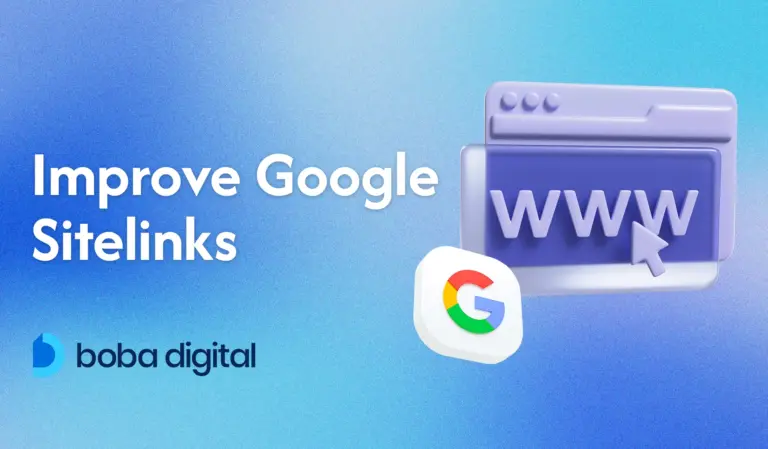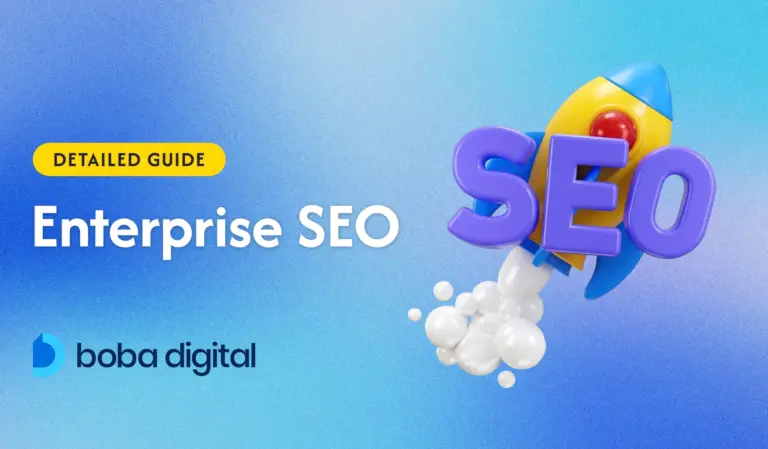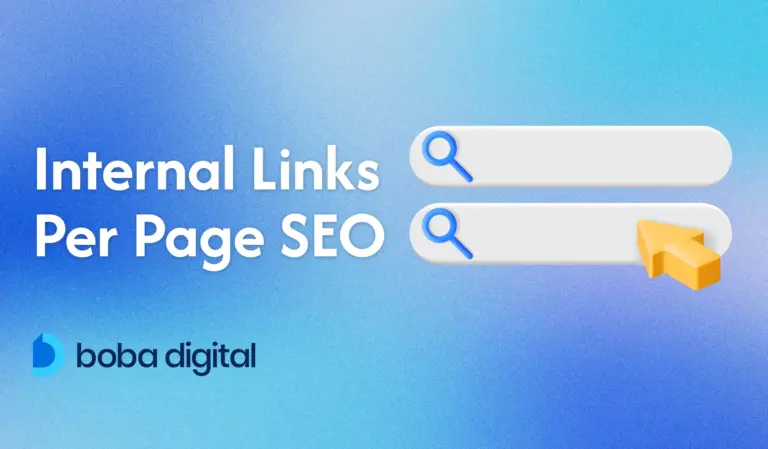In-House SEO vs Outsourcing: What’s the Smarter Choice?
Think your website will magically rise on Google just because it exists? Think again. In 2025, search engine optimization isn’t just helpful—it’s non-negotiable if you want your business’s online presence to matter.
But once you commit to stepping up your SEO game, a tricky question pops up. Do you build an in house SEO team, or should you hand it over to an outsourced SEO provider with experience across multiple clients?
It’s a classic case of house vs outsourcing—a debate as persistent as pop-up ads.
We’re not here to pick sides. Instead, we’ll break it all down, from costs to control to SEO knowledge, so you can match your choice to your actual business needs not someone else’s.
So buckle up. The answer isn’t as obvious as you think. And the stakes? Your next big leap in organic traffic.
What is In-House SEO?
In-house SEO refers to the practice of managing all search engine optimization efforts within your own company, using an internal team or a dedicated individual. This could mean assigning an existing employee to handle SEO tasks or building a dedicated SEO team from the ground up.
Either way, all the work stays under one roof.
One of the biggest advantages of keeping SEO in-house is how closely the team aligns with your company culture and business objectives. Your in-house team understands the brand voice, tone, and overall marketing direction because they live and breathe it daily.
Whether you’re running an e-commerce site or offering legal services in your city, this deep familiarity helps tailor a more personalized and consistent SEO strategy.
An effective in-house SEO team might include roles like an SEO manager overseeing strategy and reporting, a technical SEO specialist fixing site structure issues, and a content strategist working with writers to plan blog posts and landing pages.
Having this internal setup allows for direct communication and faster collaboration across departments like design, development, and sales.
Because SEO is never one and done, your team must stay updated with search engine algorithms and the latest SEO trends. That could mean regular ongoing training, experimenting with new SEO tools, or refining keyword research methods based on campaign performance.
Let’s say you’re a business owner running several local service websites. You might assign a single SEO expert to manage everything or bring on a larger house team if you’re scaling rapidly. Either way, you control the resources and priorities from day one.
Having SEO in-house gives you ownership. But is it always the right move? Let’s look at the flip side.
What is Outsourced SEO?
Running a business is hard enough without learning the finer points of search engine algorithms or managing an ever-growing list of SEO tasks. That’s where outsourced SEO comes in.
Outsourcing SEO means hiring an external SEO provider whether that’s a freelancer, a specialized SEO agency, or a full-service digital partner to manage parts or all of your search engine optimization efforts.
From technical SEO audits and keyword research to link building and monthly reporting, these experts handle the heavy lifting while you focus on running your business.
There are a few common models. Project-based outsourcing works well for one-off needs like a site audit or content overhaul. Retainer-based agreements offer consistent support across multiple months, ideal for businesses with long-term growth goals.
Then there’s the full-service SEO partner, offering comprehensive support across all channels, tools, and campaigns.
What makes outsourcing SEO appealing is the combination of specialized skills, up-to-date SEO knowledge, and access to expensive SEO tools without the costs of hiring full-time staff.
Instead of investing in ongoing training, benefits, and overheads, you can rely on experienced SEO professionals who already manage multiple clients across industries and understand how to navigate the evolving SEO landscape.
Let’s say your company is launching a national product and you want to scale fast. Outsourcing SEO lets you skip the hiring process and tap into a ready-made, dedicated team that can act immediately.
By working with an outsourced SEO provider, your internal team has more freedom to focus on product, sales, or customer service. At the same time, your business’s online presence benefits from expert-driven SEO campaigns designed for real results.
So, which is better? Let’s compare the two models side by side.
Key Differences Between In-House and Outsourced SEO
Who manages strategy and execution?
Think of SEO like driving a car. The question is: do you want to sit in the driver’s seat, or hire someone with a racing license to get you there faster?
When you go in-house, your SEO strategy is crafted and executed by your internal team. This allows for tighter coordination with other departments and the ability to make real-time changes that reflect shifting business goals or seasonal campaigns.
If your marketing team decides to pivot mid-week, your in-house SEO team can shift gears on the spot.
With outsourced SEO, the steering wheel is handled by external professionals. These experts often bring a fresh perspective, working across industries and keeping up with SEO trends that your team might miss.
While you may not have hands-on control, you do gain access to deeper SEO expertise and faster execution, especially if your internal staff isn’t equipped to manage complex SEO projects like site migrations or multi-location local SEO campaigns.
Ultimately, house SEO gives you control, but outsourcing SEO offers breadth and speed. The choice often depends on whether you value full autonomy or prefer leveraging outside experience to accelerate your growth.
Levels of Control and Communication
When SEO is managed internally, communication flows naturally.
The internal SEO team is closely connected with your marketing team, developers, and decision-makers, making it easy to coordinate updates or address urgent changes without delays. This hands-on access allows you to maintain full control over messaging, timelines, and how SEO integrates with your broader goals.
Having an in house team means fewer barriers. Need to realign content with a new product launch? You can have that conversation in real time. That level of immediacy is tough to match when working with third-party vendors.
With outsourced SEO, communication is often structured—weekly calls, shared dashboards, and status updates. While reliable, it can feel less agile. Time zone differences and client load may slow response times, and you’ll likely rely on your SEO provider’s reporting schedule rather than your own.
Choosing between the two depends on how much control you need and how fast you need things done.
Integration with Broader Marketing and Business Goals
SEO doesn’t work in a vacuum. When it aligns with your branding, campaigns, and customer touchpoints, that’s when it becomes a real growth engine.
With in-house SEO, your team naturally fits into the rhythm of your business. They’re part of internal meetings, privy to product roadmaps, and aware of brand updates before they go live. This proximity allows for seamless alignment with marketing initiatives, whether it’s syncing content with seasonal offers or adjusting SEO strategy based on shifting business objectives.
Because your internal resources share the same workspace or communication channels, they’re able to adapt fast especially when SEO needs to support launches, events, or promotions. This cohesion helps maintain consistency across all channels, from email to social to paid media.
Working with an outsourced SEO provider, on the other hand, may require a little more onboarding and alignment. They won’t automatically have access to internal plans unless you make it a point to share them. But once synced, a strong SEO partner can plug into your larger marketing engine, bringing new campaign ideas, cross-channel insights, and even enhancing strategies across SEO, PPC, and social.
The key is choosing whether you want that integration to come built-in—or if you’re willing to build it with the right support.
Here’s a simple comparison table highlighting the key differences between In-House SEO and Outsourced SEO for better clarity:
| Aspect | In-House SEO | Outsourced SEO |
| Who Manages Strategy & Execution | Managed by internal staff; full control and immediate adaptability | Handled by external experts; brings specialized knowledge and tools |
| Control & Communication | High control with direct, real-time communication across departments | Less direct control; communication depends on schedules, tools, and time zones |
| Integration with Marketing & Goals | Deeply integrated with company culture, brand voice, and long-term goals | May require onboarding, but can align with broader digital marketing campaigns |
| Speed of Implementation | Fast execution for updates and adjustments | May take longer depending on communication flow and project scope |
| Cost & Overhead | Higher overhead due to salaries, benefits, and training | Often more cost effective; no long-term hiring or onboarding required |
| Access to Tools & Expertise | May require separate investments in SEO tools and ongoing training | Agencies provide access to premium tools and experienced SEO professionals |
| Scalability | Limited by internal capacity and hiring speed | Easier to scale with outsourced SEO provider and larger dedicated teams |
| Focus | SEO team may get pulled into other marketing tasks | Full focus on SEO-specific goals and search engine optimization efforts |
Pros and Cons of In-House SEO
Building an in-house SEO team gives you the steering wheel, but it also means maintaining the vehicle. While it offers unmatched control and close alignment with your brand, it comes with serious investments in people, tools, and time.
Advantages
Having SEO talent within your company means full control over strategies, campaigns, and timelines. You’re able to fine-tune messaging to reflect company goals and immediately adjust course when priorities shift.
Your team brings deep brand familiarity, which translates into more personalized content and precise keyword research. Because they work closely with sales, product, and design, collaboration happens naturally, boosting consistency across channels.
Customization is another strong point. From voice to visual identity, your SEO efforts stay aligned with your unique brand values and long-term business objectives.
Disadvantages
That control comes at a price. Maintaining a qualified in-house SEO team means covering salaries, benefits, office space, and tools. According to recent data, the average annual cost per specialist, including overhead, can exceed $90,000 to $138,000.
Add the price of SEO tools, subscriptions, and ongoing training, and your SEO budget may grow quickly.
Then there’s the hiring challenge. Skilled SEO specialists are in high demand, and keeping them engaged with limited internal resources isn’t easy. Your team may also lack exposure to a wide range of SEO challenges, making it harder to keep up with the latest SEO trends or shifting search engine algorithms.
When growth picks up, scaling your SEO efforts means hiring more people, which takes time, money, and managerial bandwidth.
Quick Comparison: In-House SEO
| Pros | Cons |
| Full control over SEO strategy and execution | High costs: salaries, benefits, tools, training |
| Deep understanding of brand, product, and audience | Competitive hiring and retention challenges |
| Real-time communication and cross-team collaboration | Limited access to premium SEO tools and varied expertise |
| Alignment with company culture and internal workflows | Difficult to scale quickly during rapid business growth |
Pros and Cons of Outsourced SEO
Hiring an outsourced SEO provider is like tapping into a powerhouse without building it yourself. It gives you immediate access to expertise, tools, and strategy—but it also means handing over some control.
Advantages
One of the biggest advantages of outsourcing SEO is the depth of skill you gain without recruiting in-house. Agencies bring together SEO specialists in technical SEO, content creation, link building, and more, offering well-rounded support under one roof.
It’s also cost-effective. Monthly retainers often fall between $2,500 to $7,500, which can be significantly less than hiring full-time staff when you factor in salaries, benefits, and software. You get enterprise-level SEO services without the enterprise-level overhead.
Outsourcing gives you instant access to premium SEO tools, from advanced site audits to competitor analysis, tools that might otherwise strain your budget. And when you’re launching a product or scaling quickly, an agency’s dedicated team can ramp up efforts without missing a beat.
Perhaps one of the most underrated benefits?
A fresh perspective. Agencies aren’t buried in internal workflows, so they can identify gaps, challenge outdated tactics, and bring in insights from other SEO campaigns and industries.
Disadvantages
The trade-off is reduced day-to-day control. You’ll need to rely on agency reporting cycles and communication channels, which can delay urgent decisions or minor changes.
Capturing your brand voice or aligning with your company culture can also be a challenge. External teams don’t sit in on internal meetings or live the brand like an internal team does, which may require extra effort to maintain consistency.
Time zone differences or communication styles can sometimes cause delays, especially with offshore vendors. If the relationship goes south or performance dips, your business could face setbacks while searching for a replacement or transitioning to a new SEO partner.
Quick Comparison: Outsourced SEO
| Pros | Cons |
| Access to specialized SEO expertise across disciplines | Less control over daily SEO execution |
| More cost effective than building an internal team | Possible disconnect from brand voice and company culture |
| Immediate access to premium tools and reporting systems | Reliance on agency responsiveness and structured communication |
| Fast scalability for campaigns and launches | Risk of performance drops or dependency on external vendors |
| Fresh ideas and cross-industry insights | Time zone differences can slow feedback loops |
Cost Comparison: In-House vs Outsourcing
Every business wants great SEO but the way you pay for it can shape your entire strategy.
Whether you’re working with a lean budget or scaling fast, understanding the true costs of SEO in house vs outsourcing can make or break your decision.
Hiring internally isn’t just about a salary.
A skilled in-house SEO professional can cost between $70,000 and $100,000+ annually. Now add roughly 35% for benefits and 25% for office overhead, plus subscriptions for SEO tools, analytics platforms, and ongoing training.
That total quickly exceeds $130,000 per year per employee. And that’s for one person—not a full team.
On the other hand, outsourcing SEO gives you access to a dedicated team, tools, and deliverables in one bundle. Monthly retainers typically range from $1,000 to $7,500, depending on scope and agency experience.
For small to mid-sized businesses, this setup is often more cost effective, especially when you consider the depth of SEO knowledge and resources provided.
Another advantage of outsourced SEO is flexibility. You can scale services up or down based on goals, product launches, or seasonal shifts without worrying about fixed payroll or long-term commitments.
Cost isn’t just a number. It’s about value, adaptability, and the return you get from your SEO investment. Let’s break it down side by side:
| Cost Factor | In-House SEO | Outsourced SEO |
| Salary | $70,000 to $100,000+ per year | Included in retainer ($1,000–$7,500/month) |
| Benefits & Overhead | ~60% of salary (includes benefits, office space, admin) | None |
| SEO Tools & Training | Additional costs; tools like Ahrefs, SEMrush, plus training courses | Included in agency’s offering |
| Team Scalability | Requires hiring more staff, increasing cost and complexity | Easily scalable without long-term commitment |
| Budget Flexibility | Fixed yearly cost, less adaptable to business cycles | Flexible monthly contracts tied to performance and business goals |
Scalability and Flexibility
Growth doesn’t always wait for your hiring timeline. When demand spikes or a campaign suddenly takes off, your ability to scale SEO can either push momentum forward or cause you to miss the moment entirely.
With in-house SEO, scalability depends on how fast you can recruit, onboard, and train new team members. That’s rarely a quick process. Expanding your internal SEO team requires budget approvals, job postings, interviews, and setup time, not to mention finding the right talent in a highly competitive space.
For many businesses, growing slowly and steadily makes sense, but it can be a roadblock when a big opportunity calls for an immediate boost in SEO efforts.
By contrast, outsourced SEO is built for adaptability. Whether you need to ramp up content production, double down on technical SEO, or launch a new location with targeted local SEO, agencies can increase resources without locking you into permanent overhead.
This makes it easier to match SEO output with business cycles and campaign demands.
Some businesses also find success with a hybrid model—keeping strategic direction in-house while outsourcing execution. This approach gives you the brand alignment and internal control you value, along with the speed and versatility of an outsourced SEO provider.
When to Choose In-House SEO or Outsourced SEO
There’s no one-size-fits-all when it comes to building your SEO team. The right choice depends on what you’re solving for—control, speed, cost, or complexity.
If your brand relies on consistent messaging, cross-department collaboration, and you’re ready to invest in building long-term expertise, in house SEO could be the way to go.
It works best when your business has the resources for dedicated hires, ongoing SEO training, and the bandwidth to manage a team that stays tightly aligned with your internal processes.
On the other hand, if you’re launching a product, entering a new market, or simply don’t have internal SEO knowledge to start with, outsourcing SEO makes the path smoother.
You get quick access to specialists, advanced SEO tools, and flexible contracts that fit your current stage, whether you’re a startup, scaling rapidly, or managing multiple campaigns.
For some businesses, especially those with evolving needs, a hybrid setup might be ideal. Keep strategy and vision in-house, and outsource SEO services for content, audits, or link building when needed. This offers control without stretching internal resources too thin.
Ultimately, your choice should reflect your current business needs, goals, and capacity not just what looks good on paper.
Hybrid Approach: Combining In-House and Outsourced SEO
Sometimes, the smartest move isn’t choosing one side—it’s merging the strengths of both. That’s where the hybrid SEO model comes in.
This approach blends the strategic insight of an internal SEO team with the executional power of an outsourced SEO provider. Your team focuses on brand-aligned content, voice, and long-term vision, while the agency takes charge of technical SEO, link building, audits, and scaling up campaigns when needed.
It’s a balance that brings the best of both worlds: the deep understanding of your brand from the inside, and the specialized skills and SEO tools that agencies already have in place. Businesses that adopt this model often find it more cost efficient, since they can scale execution without constantly expanding the in-house team.
But for this setup to work, clear communication is key. Each side should know exactly who owns what, from content calendars to reporting to algorithm monitoring. Without well-defined roles, even the best intentions can lead to overlap or confusion.
Done right, the hybrid model gives you speed, flexibility, and control—all without compromising your business’s online presence or burning out your internal resources.
Conclusion
There’s no universal winner in the battle of in-house SEO vs outsourcing—only what fits your business best.
Going in-house gives you control, alignment with your brand voice, and direct collaboration with your internal teams. But it comes with a significant investment in hiring, training, and tools, and scaling isn’t exactly quick. On the flip side, outsourced SEO offers speed, deep SEO expertise, and cost flexibility, though you may give up some day-to-day control in the process.
That’s why more businesses are turning to the hybrid model, blending internal strategy with outsourced execution to stay agile while staying true to their brand.
Your SEO strategy should reflect your stage of growth, team structure, and business goals, not just industry trends. If you’re still unsure which route is right for you, we can help you weigh the options.
Looking for an SEO partner who gets both sides of the game?
Reach out to Boba Digital—we’ll help you craft a strategy that works as hard as you do.
FAQs
Is outsourcing SEO more cost-effective than hiring an internal team?
Outsourcing SEO is often more cost-effective, especially for small to mid-sized businesses. With a monthly retainer, you gain access to an experienced SEO team, premium SEO tools, and a broad range of SEO services like link building and technical SEO audits—without paying full-time salaries or benefits. While in-house SEO gives you direct control, the total cost of hiring, training, and maintaining a team can exceed $130,000 per year per employee, making outsourced SEO a flexible and budget-friendly option.
How do I know if my business should keep SEO in-house or outsource it?
It depends on your business objectives, resources, and timeline. If you need complete control over SEO tasks and strong integration with your internal marketing team, an in house SEO team might be a better fit. But if your business lacks SEO knowledge or needs fast, scalable execution, then outsourcing SEO offers a smarter path. Consider your SEO strategy complexity, company size, and budget before committing to either direction.
Can I combine in-house SEO with an agency or freelancer?
Yes, many businesses now prefer a hybrid SEO model. Your internal team can handle brand-centric strategy and content planning, while an outsourced SEO provider tackles technical SEO, keyword research, and campaign scaling. This gives you the brand alignment of house SEO with the flexibility and depth of expertise that comes from working with experienced SEO professionals. Just make sure roles are clearly defined to avoid confusion or duplicated efforts.
What are the hidden costs of in-house SEO teams?
Beyond salaries, in-house SEO comes with several hidden expenses. These include benefits, office overhead, ongoing training, and subscriptions to premium SEO tools. Plus, recruitment and retention of skilled SEO specialists can be challenging and costly. If your SEO efforts require scaling, you may also face delays and additional costs associated with hiring more staff. Over time, these factors can make a house team more expensive than it initially appears.
How quickly can I expect results from an outsourced SEO agency?
Results from an outsourced SEO agency vary based on your website’s current state, industry competition, and SEO strategy. Generally, noticeable improvements in organic traffic and search engine rankings can begin within 3 to 6 months. Since most SEO agencies already have systems, tools, and dedicated teams in place, they can act faster than newly built internal teams. Still, SEO is a long-term game, and steady progress matters more than overnight wins.
What are the risks of outsourcing SEO?
Outsourcing SEO does come with a few risks, such as reduced visibility into daily SEO tasks, potential misalignment with brand voice, and reliance on the agency’s responsiveness. Time zone differences and communication gaps can sometimes delay action. There’s also the chance that your SEO provider may prioritize other clients if roles and expectations aren’t clearly outlined. That’s why choosing a reliable, transparent SEO partner is crucial to long-term success.

